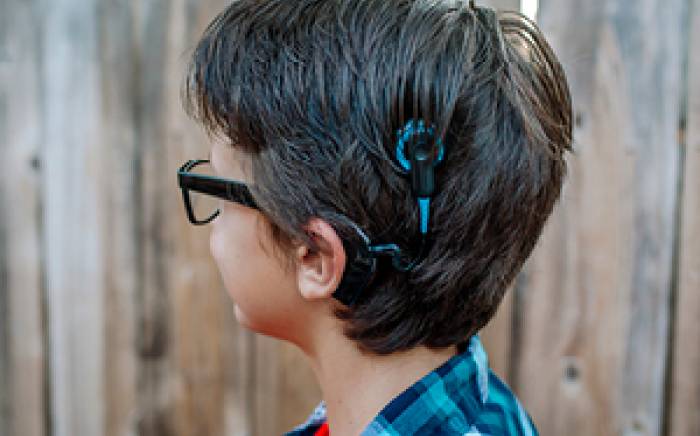The following case study was used by Andrew J. White, MD, the James P. Keating, MD Professor of Pediatrics and division director of pediatric rheumatology, Washington University School of Medicine, and director of the St. Louis Children’s Pediatric Residency Program, as part of the “Patient of the Week” (POW) series. Many of the POW case studies cover uncommon illnesses, or common illnesses with unusual symptoms that can be overlooked. If you would like to be added to the POW email distribution, send an email to [email protected].
Subject: 16-year-old boy with CC: loss of consciousness and difficulty breathing two weeks ago.
HPI: He woke up at approximately 2 a.m. and began to itch all over. He went into the bathroom, but collapsed on the floor and started feeling like he was going to have diarrhea. His mother came in shortly thereafter and tried to help him, but he was unable to speak. EMS arrived and took him to the emergency department.
He has had several of these episodes before, though none nearly as severe as this one. They typically occur at nighttime and often begin in his hands. He notes that is a sensitive indicator of the severity of one of these episodes, as his hands begin to feel very swollen. Benadryl helps his symptoms fairly quickly (but really did not start to help this last episode until he got to the emergency department).
Triggers: He has not been able to identify any triggers for these episodes in the past, and he eats pretty much any food he wants except for milk, which gives him diarrhea. He mostly prefers meat and potatoes.
In addition to his itching symptoms, he often has nasal congestion, a runny nose and sinus infections.
He gets headaches several times a week, typically going down into his neck. He uses nasal spray decongestants as well as salt-water irrigation and antihistamines to improve his symptoms. He does not usually have any asthma symptoms and denies wheezing, shortness of breath or difficulty with physical exertion. Sometimes dust makes his nasal symptoms worse, but he has never undergone skin testing.
Once in the emergency department, he was given prednisone and antihistamines and gradually got better and was discharged home with follow up scheduled in the allergy clinic.
Past medical history:Healthy
Medications:None
Vaccinations: Up-to-date
Allergies:No known drug allergies
Environmental history: He lives in a suburban home that is about 30 years old. There is air conditioning and forced air heating. He does some of the vacuuming around the home. The family has both dogs and cats that typically sleep in the living room. He uses fabric softeners. No plants in the home. He has carpeting in the bedroom but not throughout the house. His mattress is at least 6 years old, and his pillows are 5 years old. He has cotton bed linens. He considers himself an outdoorsman and is a frequent hunter; he has been bitten many times by ticks.
Family history: His father has allergies. Both of his parents have diabetes (NIDDM).
Examination:
General: No distress.
Vitals: BP 118/76, T 98.1, HR 78, RR 20
Skin: No rash, no hives.
HEENT: Normal tympanic membranes, oropharynx clear, inferior turbinates pale and boggy, tympanic membranes normal.
Lungs: Clear to auscultation.
Cardiac: Regular rate and rhythm; no murmurs, rubs or gallops.
Abdomen: Soft, nontender and nondistended. Normoactive bowel sounds.
Extremities: Warm and well perfused. No clubbing, cyanosis or edema.
Testing: Epicutaneous skin testing resulted in positive reactions to red maple and red willow as well as cocklebur, true marsh elder, English plantain, ragweed mix, Russian thistle and dust mite.
Diagnostic Considerations:
- Idiopathic angioedema/urticaria with (recent) anaphylaxis
- Alpha-gal allergy
Labs: CU index, CBC, C4, IgE, TSH all within normal limits. Tryptase elevated at 12 ng/mL and alpha 1,3 galactose IgE significantly elevated at 5.83 kU/L, indicating he has alpha-gal allergy.
Diagnosis:
- Alpha-gal allergy (deer tick/steak allergy).
- Anaphylaxis, recent, secondary to No. 1.
Plan:
- Avoid meat (pork, beef and lamb).
- He should also continue to monitor his diet and symptoms to identify any additional triggers of his hives.
- Recheck labs after he has been adherent to meat-free diet.
- Cetirizine 10 mg b.i.d.
- Montelukast 10 mg daily.
- Ranitidine 150 mg b.i.d.
- Epipen prescription and instructions on use.
Comment: Allergy and anaphylaxis via IgE antibodies to galactose-alpha-1,3-galactose is a newly recognized, and apparently fairly common, phenomenon. It appears to be related to bites from the lone star tick (and possibly others), which expose the patient to the foreign antigen. After ingestion of red meat (including pork), patients become symptomatic, usually within 4-8 hours of the meal. Avoidance of the antigen (meat) improves symptoms, and patients may “grow out” of the reaction over time.
Reference:
Commins, S.P. and Platt-Mills, T.A.E.; Delayed Anaphylaxis to Red Meat in Patients with IgE Specific for Galactose alpha-1,3-Galactose (alpha-gal); Curr Allergy Asthma Rep. 2013 February; 13(1): 72-77.












